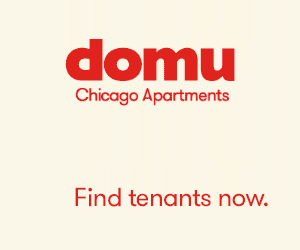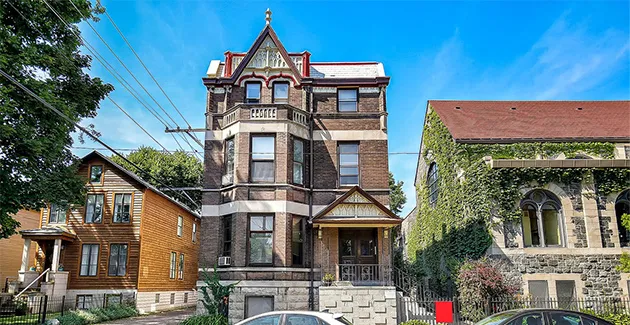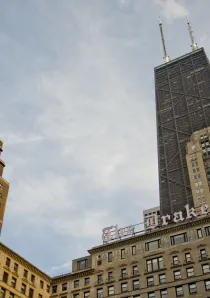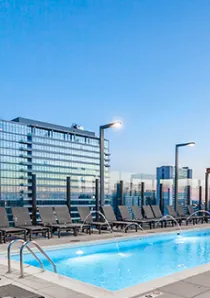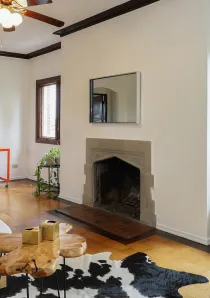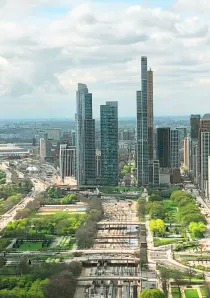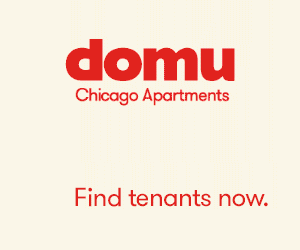Beware, Chicago Airbnb, HomeAway, and VRBO tycoons, because the carefree days of operating an illegal Chicago vacation rental are over. In 2016 and 2017, then-Mayor Rahm Emanuel and the City Council amended the Municipal Code to regulate better and tax vacation rentals and shared housing units. The City Council approved another round of regulatory measures in the summer of 2020 to combat short-term rentals in Chicago as "party houses" or hubs for prohibited activities.
New amendments to The City of Chicago's policy on vacation rental homes and short-term rentals include a ban on single-night stays. The ban on stays booked for only one night comes as the City Council looks for measures to clamp down on parties that have led neighbors to complain about noise and unruly activity. Nearly 9,000 licensed vacation rentals are operating in Chicago, and City Council had already moved to suspend single-night bookings in March 2020 during the early phase of the Coronavirus pandemic. The latest updates to the law extend the ban on single-night stays for the near future.
The licensing aspect of home-sharing for Chicago vacation rental owners will also receive some updates. On top of the ban on one-night stays in Chicago's short-term rentals, the amendments also increase the annual license fee from $60 to $125 per unit. Property owners who list homes as vacation rentals on popular booking sites like Airbnb, VRBO, and HomeAway now need to submit their registration information with the city as opposed to just sharing them with the respective home-sharing platforms, which should help the Department of Business Affairs and Consumer Protection track violations and prevent bad actors from renewing their licenses. Some aspects of the amended regulation take effect immediately, and others are delayed until April 2021.
Vacation rental owners who violate the law will face fines between $5,000 and $10,000.
At Domu, we don’t take a position on the Chicago Airbnb wars, but we respectfully encourage you to follow the law, and in any case, we don’t want your vacation rental in Chicago to cause you more fines than revenue! Here’s what you need to know about operating a legal Chicago vacation rental:
- You must submit an Application and License Fee of $500 to the city (that’s an annual fee).
- If your unit is subject to restrictions by a homeowners association or board of directors, you must attest that the association or board has not adopted bylaws prohibiting the use of your unit as a vacation rental.
- You must purchase homeowner’s fire, hazard, liability insurance, and general commercial liability insurance with limits of not less than $1,000,000 per occurrence, as mandated by code.
- Your unit will be inspected by the City of Chicago Department of Buildings. Additional costs might flow from the inspection in mandated renovations, repairs, and associated permitting fees.
- Taxes are now 10.5% of the gross rental or leasing charge (see the Hotel Accommodations Tax in Section 3-24 of the Municipal Code), up from the previous tax of 8.5%.
- You’ll have ongoing housekeeping costs, including the maintenance of guest registration records, the provision of soap, towels, and linens, and cleaning and sanitizing the vacation rental after each guest departs.
Note that some Chicago aldermen are using zoning laws to prohibit the issuance of new vacation rental licenses from certain precincts. Aldermen Marty Quinn (13th Ward) and Michael Zalewski (23rd Ward) have been particularly active in this regard.
And just in case you were thinking of taking your chances with an unauthorized Chicago vacation rental, please know that being an illegal Airbnb Chicago downtown host could be very costly. MCC § 4-6-300(i)(1) threatens that “[a]ny person who operates the business of vacation rental without first having obtained the required license for such business shall be subject to a fine of not less than $2,500.00 nor more than $3,000.00 for each offense. Each day that a violation continues shall constitute a separate and distinct offense.” Keep in mind that your listing on a peer-to-peer website like VRBO is convincing evidence of your operation of an illegal vacation rental. And if your neighbors are annoyed by the transient guests, they might bring your illegal business to the attention of city authorities or your condominium or homeowner’s association.
Domu is not a law firm, nor is it a substitute for one. This blog provides no legal advice. While we endeavor to provide complete and accurate information, we make no warranties about the information included here. If you have questions about your particular situation, please consult a lawyer.

